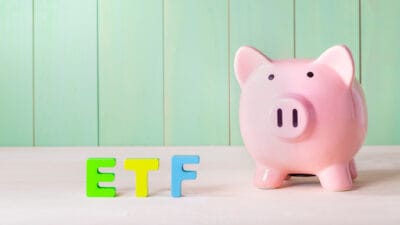The iShares Core S&P/ASX 200 ETF (ASX: IOZ) is a leading exchange-traded fund (ETF) that provides investors access to the S&P/ASX 200 Index (ASX: XJO).
The ASX 200 is an index of 200 of the largest businesses on the ASX. The fund is provided by Blackrock through its iShares brand.
Investor interest in ETFs is growing because this investment structure can enable us to buy a whole basket of shares in one investment, which may be very appealing to some investors.
The IOZ ETF is one of the largest on the ASX, with a size of $5.7 billion. However, size alone is not enough to make an investment.
Diversified portfolio?
Owning 200 businesses is a lot of diversification, much better than just owning five or ten individual stocks.
It owns businesses in various sectors, including BHP Group Ltd (ASX: BHP), Commonwealth Bank of Australia (ASX: CBA), CSL Ltd (ASX: CSL), Wesfarmers Ltd (ASX: WES), Goodman Group (ASX: GMG), and Woodside Energy Group Ltd (ASX: WDS).
The IOZ ETF has sizeable allocations to sectors like financials, materials, healthcare and consumer discretionary, which is not surprising considering those areas are a significant part of Australia's economy.
Low management fee
One of the main advantages of investing in an ASX ETF like this is that it has very low management costs.
The lower the annual fees, the more of the returns and fund balance stay in investors' hands.
According to Blackrock, the IOZ ETF's annual management fee is just 0.05%. That's one of the lowest fees for a fund on the ASX.
Is it a good investment?
Most Aussie investors reading this may want to get exposure to the ASX share market, and this seems to be an easy way to do that. It could be part of a portfolio alongside investments that give exposure to the global share market.
However, in terms of diversification, it may not tick the box as much as you'd hope. At June 2024, the biggest 10 positions made up 48% of the portfolio.
Those positions were BHP (9.29%), CBA (9.15%), CSL (6.1%), National Australia Bank Ltd (ASX: NAB) (4.82%), Westpac Banking Corp (ASX: WBC) (4.06%), ANZ Group Holdings Ltd (ASX: ANZ) (3.65%), Wesfarmers (3.17%), Macquarie Group Ltd (ASX: MQG) (3.13%), Goodman (2.58%) and Woodside (2.30%).
One of the main downsides of the portfolio is that more than half is allocated to just ASX bank shares and ASX mining shares. Some investors may be hoping for more diversification than what's on offer.
Over the past five years, the IOZ ETF has only returned an average return per annum of 7.2%. That's not bad, but not exciting. I'd only want the IOZ ETF to be a minority part of my portfolio because of the lower growth potential.
ASX miners and banks usually don't grow profit at a fast compound growth rate, and they don't retain much of their profit to reinvest for growth. I'd want to ensure my portfolio had a sizeable allocation to large global growth shares like Microsoft and Alphabet.








